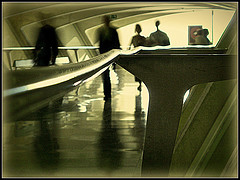How to Avoid Jet Lag
 Avoiding jet lag is, contrary to public belief, not rocket science. It is actually quite simple.
Avoiding jet lag is, contrary to public belief, not rocket science. It is actually quite simple.
Your body has an internal clock. Flying to a different time zone means that instead of arriving during the day, you are arriving at night, or vice verse. You are either going to be very tired or not be able to sleep. If you aren’t careful you will need two days or sometimes even three just to feel rested after a good nights sleep. People who work in shifts experience the same problem. Your body can only adjust at about 4 hrs every 24 hrs.
How do I avoid jet lag?
The first step is simple. Plan ahead! Most people will stress up to the last minute before their trip with the mindset that they can sleep on the beach. That is the worst possible course of action, because it only makes adjusting to a new time zone that much more difficult.
Depending on if you will be traveling east or west you should adjust when you sleep accordingly. If you are traveling east or west will also be a deciding factor in whether or not you should sleep on your flight. The other major factor in choosing whether to sleep or not is if your flight is in the morning, evening or both.
Taking you through all the possible combination of time-zones, flight times and directions would take far to long, so I’ll go through the case of the most common variety – hopping the pond – or in normal English, transatlantic.
If possible get a mid-day flight out from Europe. You will be traveling west, that is in the direction of the sun, and gain, depending on your destination, probably at least 6 hrs. This means that you won’t be able to adjust in one night. A great tip is to wear a second watch, or set the clock on your iPod to the local time at your destination. This makes the analog math a little easier. Try adjusting your last day at home to the anticipated rhythm of your days at your destination.
Getting a flight at around noon will get you to your destination at around eight or nine in the evening central European time and early afternoon eastern standard time in the united states. If you don’t sleep on the flight but spend it watching the in-flight movie or getting some last minute work done on your laptop, you will find it a lot easier to adjust.
It is very important that you eat your in-flight meals and drink lots of water. Flying causes dehydration which worsens the jet lag effect on the body and not eating leaves you low on energy. Pre-ordering your food will let you make a healthy choice if you have special dietary requirements.
Flying back from the United States to Europe is the same thing but in reverse. Get a late afternoon flight and sleep after having eaten the meal. Make sure the flight attendant knows to wake you for your breakfast. This gives you a solid 6 hours or more of sleep.
